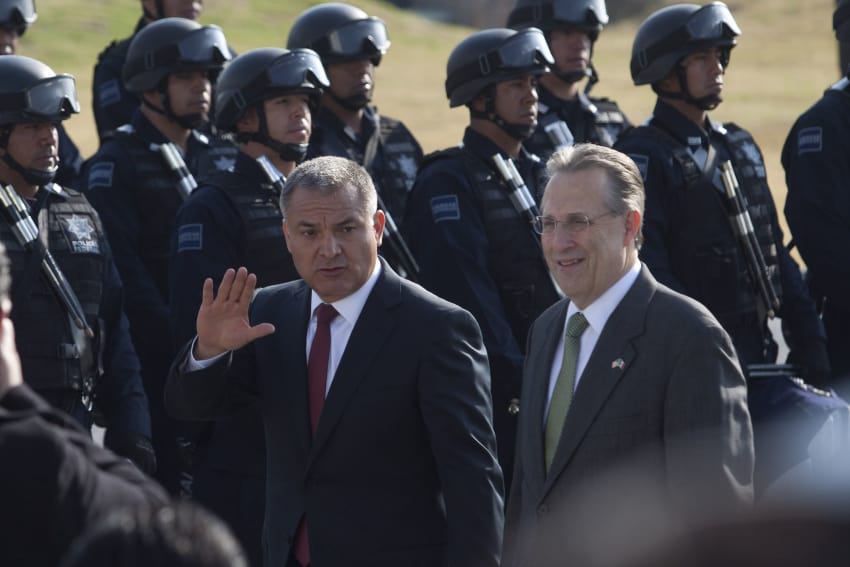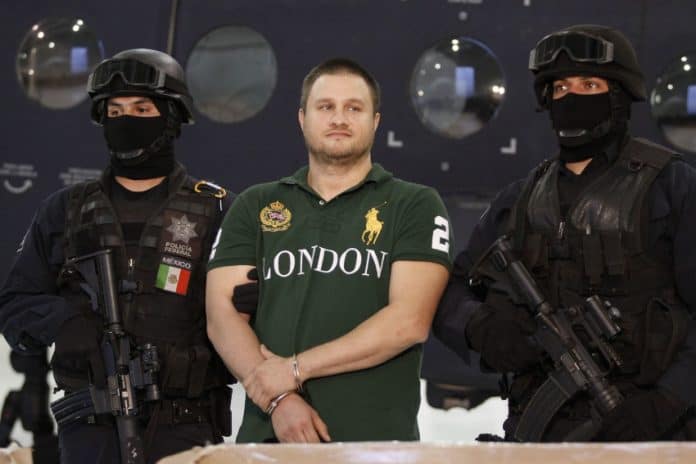The U.S. government has confirmed that former Beltrán Leyva Cartel capo Édgar Valdez Villarreal, alias “La Barbie,” has been transferred out of a Florida prison, amidst heated speculation that he is collaborating as a protected witness.
On Monday, it was revealed that Valdez is no longer listed as a federal inmate by the Bureau of Prisons (BOP), an agency within the U.S. Department of Justice. No further information is available on his whereabouts, and both agencies have declined to comment on his case.
“Inmates who were previously in BOP custody and who have not completed their sentences could be out of BOP custody for a period for court hearings, medical treatment or for other reasons,” said BOP spokesman Benjamin O’Cone.
Kent Schaffer, Valdez’s former lawyer, speculated that his former client’s disappearance from BOP records may indicate that he has agreed to give evidence as a protected witness.
“Often what happens, hypothetically, is that if you’re going to testify against someone, the [federal] marshals will move you to a detention center, for example Rikers Island or the MCC [jails in New York],” he told La Jornada newspaper.
Former DEA official Mike Vigil expressed a similar opinion to Milenio Television, emphasizing that Valdez’s status as a high-ranking drug trafficker meant he would have privileged information about his former criminal associates.
“Neither La Barbie nor other criminals want to die in a prison here in the United States… He was related to the Beltrán Leyva Cartel; he was in meetings with ‘El Chapo’ Guzmán and other members of the Sinaloa Cartel, so he can testify against many people, many officials,” Vigil said.
Valdez was sentenced to 49 years in prison by an Atlanta federal judge in 2018, after pleading guilty to charges of drug trafficking and money laundering. He was captured in Mexico in 2010 and extradited to the US in 2015. At his trial, prosecutors alleged that he was a senior member of the Beltrán Leyva Cartel at a time when its leaders had close links to the Sinaloa Cartel.
Both Schaffer and Vigil pointed out that one of the cases in which Valdez could be a valuable informant was the case against Genaro García Luna, a former Mexican federal security minister who was arrested in Texas in 2019 on charges he colluded with the Sinaloa Cartel.

“When I represented [Valdez Villarreal] 10 years ago, [U.S. authorities] were already asking about García Luna back then,” Schaffer told La Jornada. “We had several government interrogations about García Luna. So, it might make sense that if the trial is in New York, they would move him to that city so prosecutors would have time to talk.”
Even before his extradition, Valdez had accused García Luna of receiving bribes from his cartel. From his arrest onwards, Valdez’s legal strategy has centered on attempting to expedite his extradition to the U.S. – where he was born and holds citizenship – and negotiate a reduced sentence in exchange for offering information.
For his part, President López Obrador expressed concerns about Valdez’s disappearance from BOP records and demanded that U.S. authorities clarify his whereabouts.
“We want to know where he is,” AMLO said in his Wednesday press conference. “The inquiry has been made and there is no clarity on the subject, but we will continue asking them to inform us.”
He insisted that U.S. authorities would have no justification for releasing Valdez, who would also face criminal charges in Mexico.
“There have been cases where extraditions are carried out, also with sentences of many years, they make deals over there and they don’t come back, they are released,” he said. “But even if there is a deal, we would still have to act if there are charges in Mexico.”
With reports from La Jornada, El Universal and Borderland Beat
